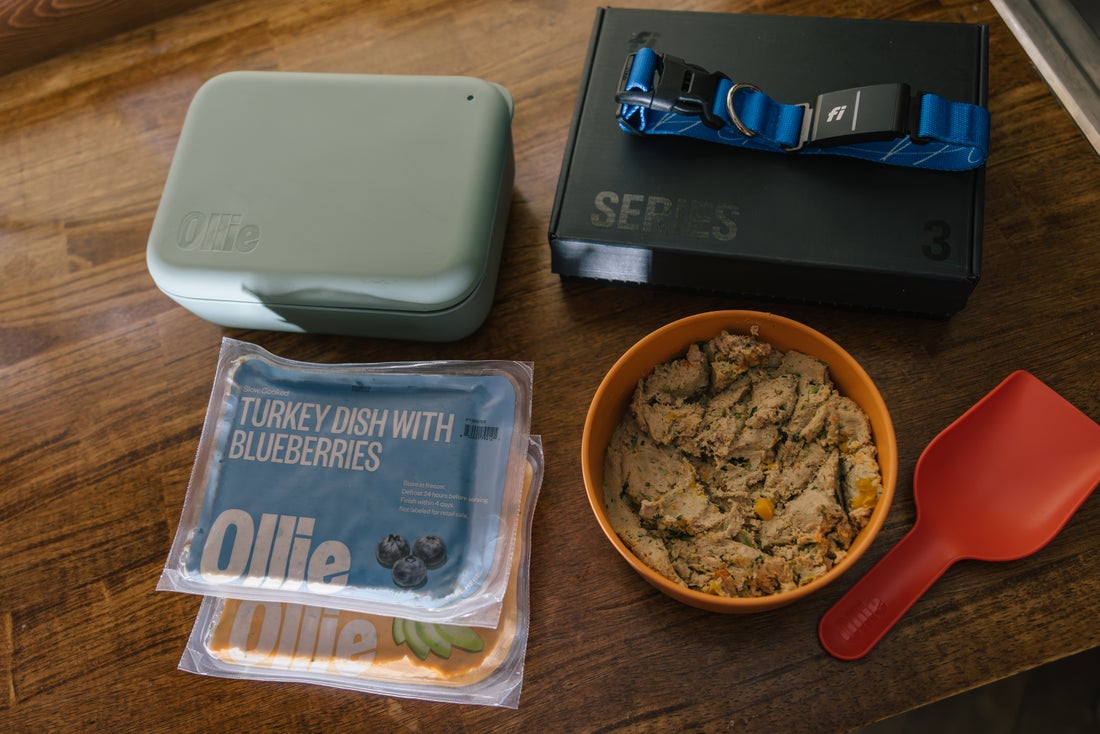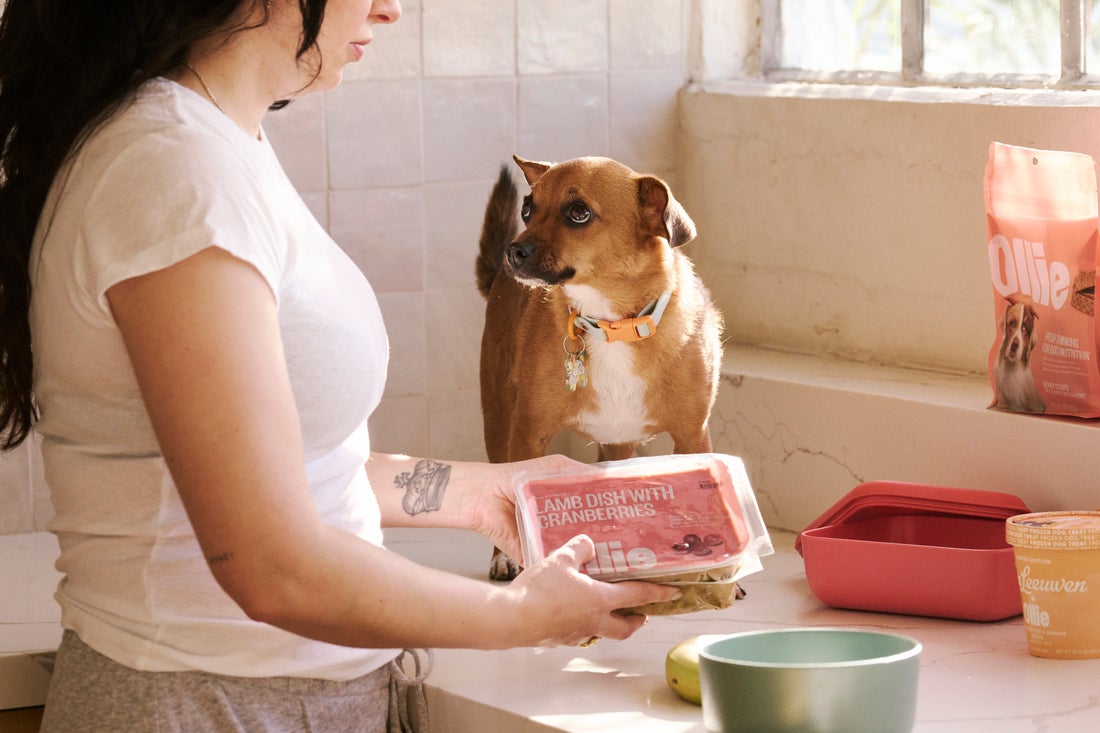Hey Ollie blog readers! We’re offering you an exclusive 60% OFF your starter box! Try now!
Worms in dogs are more than just gross, they can make your pup feel miserable and spread to other pets or even people. Roundworms, tapeworms, hookworms, and whipworms are the usual suspects behind stomach troubles and weight loss in dogs.
If you’re wondering how to get rid of worms in dogs quickly, you’re not alone. Many pet parents want safe, natural ways to clear out these parasites fast. In this guide, I’ll share how to spot signs of worms, what kills worms in dogs instantly, and simple home remedies that can help keep your dog healthy and worm-free.
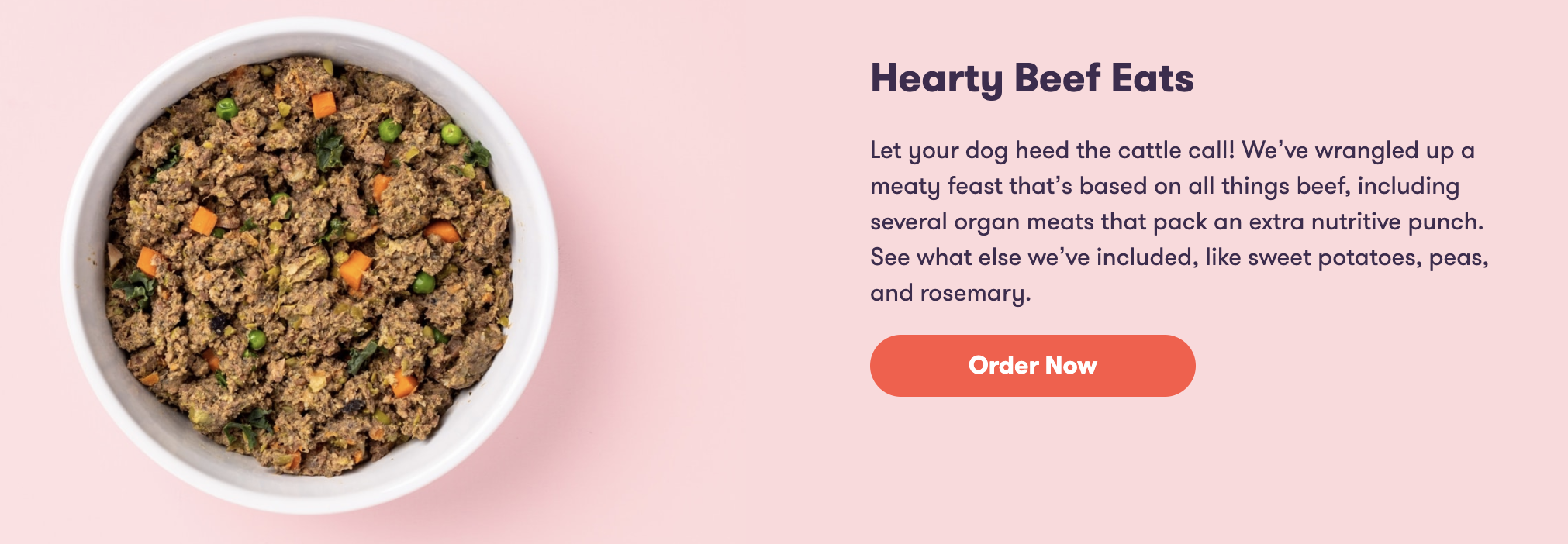
How Do Dogs Get Worms?
Dogs can pick up worms in ways that might surprise you. Puppies often get roundworms from their mother before they’re even born or through her milk while nursing. Adult dogs can pick up worms by sniffing, licking, or eating something contaminated with parasite eggs, like soil, poop from another animal, or even an infected flea.
Dogs that hunt or chase wildlife are at higher risk too. According to the American Veterinary Medical Association (AVMA), Dogs can become infected by eating rodents, birds, or rabbits that carry immature worm stages. So even that ‘harmless’ backyard squirrel can carry hidden risks.
Another sneaky way dogs get worms is by walking through contaminated areas. Hookworm larvae, for example, can penetrate your dog’s skin just by contact. That’s why picking up poop in the yard and keeping living areas clean matters so much for prevention.
Signs That Your Dog Has Worms
Sometimes worms stay hidden until they cause bigger problems, so it helps to know what to watch for. Some of the most common signs of worms in dogs include:
- A bloated belly, especially in puppies
- Scooting or dragging their rear on the ground
- Visible worms or eggs in their poop or around their rear
- Vomiting (sometimes with worms in it — gross but true)
- Diarrhea, sometimes with blood or mucus
- Weight loss despite eating normally
- Dull coat or rough fur
- Coughing (especially with roundworms or lungworms)
If you notice any of these symptoms, don’t panic, but do act fast. Worms in dogs can be cleared up, but early treatment keeps your dog healthier and reduces the chance they’ll pass worms to other pets or family members.
4 Intestinal Worms That Commonly Infect Dogs
One of the primary reasons your vet checks your dog’s stool sample every year is to ensure they do not have worms or other intestinal parasites. The four worm types listed below are the most common worms and worm eggs found in dog stool. While adult roundworms and tapeworms can be seen with the naked eye, a microscopic evaluation (i.e., fecal flotation) allows the veterinary team to screen your pup’s sample for worm eggs. This can help identify a hidden infection (i.e., a phase in which the adult worms aren’t actively shed in the stool).
- Roundworms
Roundworm larvae are often passed from mother to puppies, either in utero or after birth through the mother’s milk. Roundworm eggs are microscopic, while adult roundworms are usually white or light brown and may be several inches long. If your pet is infected, adult worms may be visible in the stool or even vomit. Although these worms are most common in puppies, adult dogs can be infected if the worms are in their environment. - Tapeworms
Dogs can experience a tapeworm infection after swallowing an infected flea. Tapeworms are segmented worms with a small head at one end and small repeating segments that resemble flattened rice grains. In a dog’s intestine, a tapeworm can grow up to 4 to 6 inches and contain over 90 segments! Segments contain tapeworm eggs and are shed in the dog’s stool. Fresh segments may be mobile but will dry out and die rapidly once outside of the dog. If you find tapeworm segments on your dog (e.g., in the hair near the tail base) or in the stool or surrounding environment, dispose of them and immediately treat your dog.
10 Home Remedies for Fleas on Dogs
- Hookworms
These thin worms bite and feed on your pet’s intestinal lining. Like roundworms, hookworms can be transmitted to puppies from their mother. Because hookworms feed on blood, prolonged infection in small puppies can cause dangerous anemia (i.e., low red blood cells) and death. Adult dogs can also get hookworms from their environment if they ingest contaminated feces. Hookworms cannot be seen with the naked eye and must be diagnosed by your veterinarian. - Whipworms
These thread-like worms reside in a dog’s cecum, the first part of the large intestine. Whipworm infections are the most difficult to diagnose because they shed fewer eggs than other worm types. If your dog is experiencing chronic weight loss or frequent mucus-coated stools, your veterinarian may recommend whipworm treatment.
How to Recognize Worm Infestation in Dogs
The easiest way to identify an intestinal worm infestation in dogs is by appreciating visible worms or worm segments in the dog’s vomit or stool. However, because many worms cannot be seen with the naked eye, you’ll need to rely on your dog’s outward signs and regular stool checks at your veterinarian’s office to confirm the diagnosis. Common worm infection signs include:
- Diarrhea, which may include blood
- Weight loss
- Poor appearance
- Dry or dull coat
- Vomiting
- Pot-bellied appearance
- Scooting or licking their rear end
If you notice these signs, contact your veterinarian to schedule a physical examination. And, don’t forget to bring a fresh stool sample to your pup’s appointment for microscopic analysis.
Natural Dewormer Options for Dogs
If you want to avoid traditional over-the-counter and prescription deworming medications, a natural dewormer for dogs may be the right choice. However, if your dog is a small puppy, experiencing a heavy worm burden, or showing visible illness signs such as those listed above, we recommend following your veterinarian’s recommendations. For otherwise healthy adult dogs, natural dewormers may be an appropriate solution. Here are seven easy-to-find foods and pantry items you might want to try to eliminate worms in your dog:
Apple cider vinegar (ACV)

ACV can alter your dog’s intestinal pH, making it an inhospitable environment for worms. Try adding this fermented vinegar to your pet’s water. Because dosing is weight-based, consult your veterinarian for the appropriate amount. In addition to killing worms, apple cider vinegar may have other health benefits for your dog, including a shiny coat.
Chopped carrots
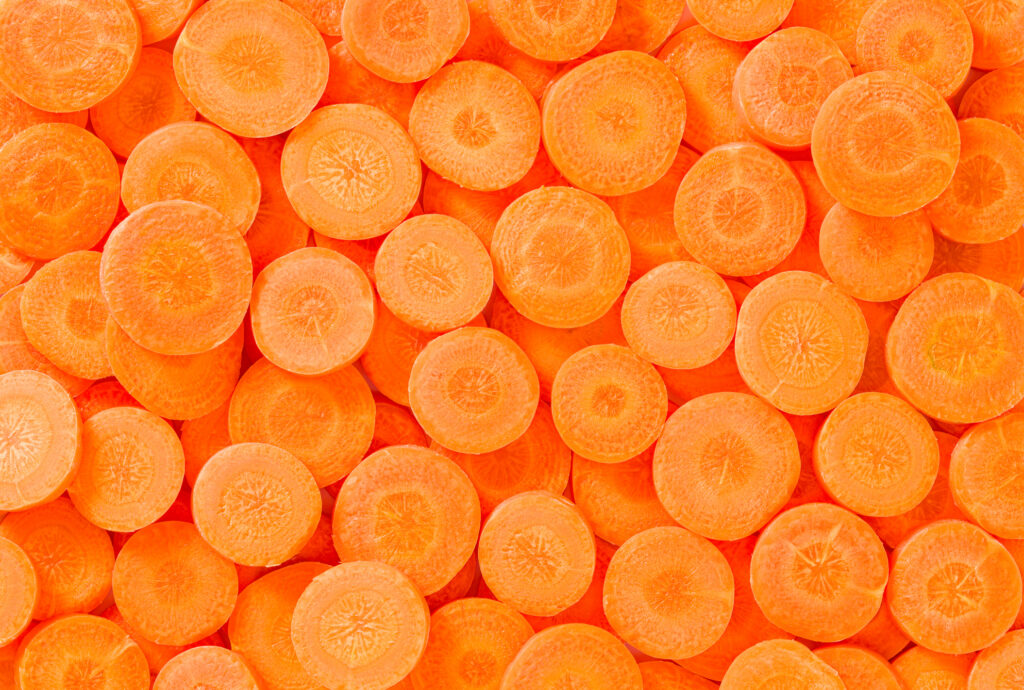
Coarsely chopped carrots may help clear worm infections by scraping the intestinal lining during digestion and eliminating them through the stool. If fed regularly, chopped carrots may also help prevent future worm infections.
Ollie Recipe Spotlight: Chicken with Carrots
Dried Coconut
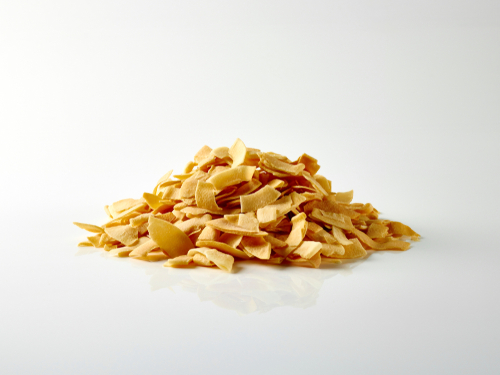
Dried coconut can help eliminate worms from your dog’s digestive tract. Sprinkle unsweetened dried coconut over your pet’s food. Serving guidelines recommend one teaspoon for small dogs, two teaspoons for medium dogs and one tablespoon for large breeds. Coconut oil may also be an effective treatment and also contains numerous other health benefits.
Pumpkin Seeds
The small but mighty pumpkin seed contains cucurbitin, a powerful amino acid that paralyzes intestinal worms and forces feeding worms to detach from the intestinal lining. Pumpkin seeds should be fed raw and plain (i.e., unsalted and unseasoned), and may be given whole or ground into a powder. Most sources recommend feeding ¼ teaspoon per 10 pounds of body weight daily.
Turmeric
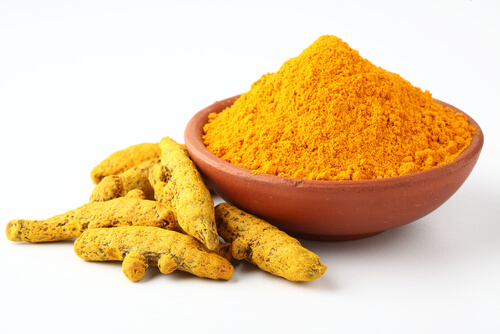
Turmeric is considered a superfood because of its anti-inflammatory properties. It also contains compounds that can help not only get rid of the worms, but also repair any intestinal damage and irritation caused by feeding or movement. Together, these benefits result in better gut health for your pup.
Chamomile
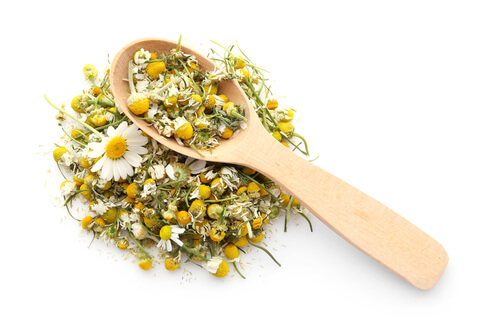
Chamomile may be an effective herbal treatment against roundworms and whipworms. This traditional tea ingredient works best when given as a tincture, so consult your dog’s veterinarian for an appropriate dose.
Kefir

This fermented beverage can help your pet get rid of worms. Choose the coconut or goat’s milk variety over dairy milk kefir as it will be easier for your pet to digest. Introduce kefir slowly and in small doses to ensure your pup can tolerate the beverage. For small dogs, try one teaspoon to one tablespoon per day. Medium dogs can receive one to two tablespoons per day, and large dogs can have two to three tablespoons per day. Kefir can be poured over your dog’s regular food or served on its own.
How Long Does It Take to Eliminate Worms Using Natural Dewormers for Dogs?
Like many natural remedies, reliable data on how long to treat your pup with a natural dewormer for dogs is not available. Fortunately, the foods listed above are relatively safe when administered in the recommended quantities. Because treatment duration may depend on your dog’s worm type, lifestage, infection severity, and choice of natural dewormer, we recommend working closely with your pup’s regular veterinarian to ensure safe and effective treatment. If you do not have access to a holistic veterinarian, many offer virtual consultations online.
Always follow up your dog’s treatment with a recheck fecal flotation at your pup’s veterinarian two to three weeks after completing treatment to ensure the microscopic infection is cleared.
10 Signs That You Need to Take Your Dog to the Vet
Medical treatment for worms
If your dog’s worm infection is severe, causing visible illness signs, or returns after treatment with a natural dewormer, a stronger medical intervention may be necessary to eliminate the parasitic infection. Work with your dog’s veterinarian to determine the most appropriate and effective treatment plan. If a prescription dewormer is necessary, your pup’s treatment plan may include:
- Pyrantel Pamoate
This is the active ingredient in Drontal® Plus, PRO-Wormer 2®, and Nemex®-2. Side effects include vomiting, lethargy, and anorexia. - Fenbendazole
This is the active ingredient in common deworming medications, including Panacur®, Drontal Plus ® and Safe-Guard®. This medication can cause side effects including vomiting, lethargy, anorexia, facial swelling and anaphylaxis. - Praziquantel
This is the active ingredient in Droncit® and Drontal® Plus. Reported side effects include vomiting, lethargy, diarrhea, and anorexia. - Combination drugs
Some drug manufacturers combine de-worming ingredients with heartworm preventives for consistent and convenient protection against heartworm disease and intestinal worms. Such products include Panacur® Plus, Heartgard® Plus, Tri-Heart® Plus, and Iverhart Max®. Discuss the risks and benefits of using these combination drugs with your veterinarian.
As with natural dewormers for dogs, you’ll need to follow up with your pup’s veterinarian two to three weeks after completing treatment to ensure they’re worm-free.
How to Prevent Intestinal Worms in Dogs
An ounce of prevention really is worth a pound of cure—especially when it comes to gross intestinal worms. Fortunately, it’s also relatively easy and intuitive. Here are some simple daily practices that can minimize your pup’s risk for intestinal worms and other internal parasites.
- Pick up and dispose of your dog’s poop
- Protect your pup from fleas
- Practice strict hygiene protocols (e.g., handwashing) after interacting with your dog or other pets or handling pet waste or supplies
- Keep your dog away from dead wildlife, standing water, and animal waste as these may be contaminated with infective eggs
- Periodically incorporate natural dewormers for dogs (e.g., chopped carrots, ground pumpkin seeds, ACV) into your pup’s diet
- Stay up-to-date with your dog’s annual veterinary care including physical examinations and fecal testing to identify hidden infections
Finally, help your dog fight off parasitic invaders naturally by boosting their immune system with food. Feeding a fresh food diet such as Ollie promotes a robust immune response by fueling your pup with powerful antioxidants, vitamins, and minerals. If your dog does encounter or ingest infective eggs, their body is more likely to clear the parasite before it can mature, replicate, and affect your dog’s health or put others at risk.
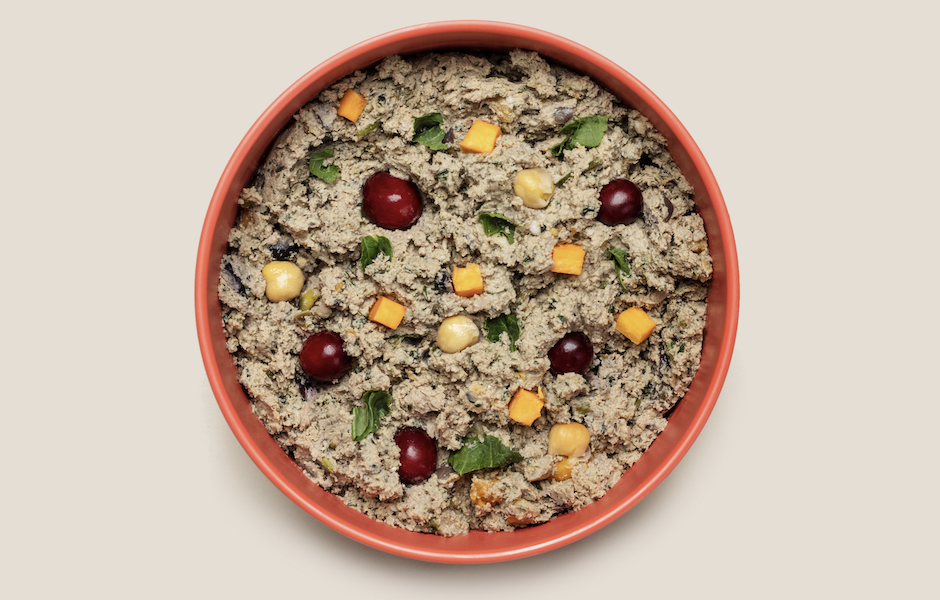

Find Out Which Recipe Plan is Right for Your Dog’s Needs
Get 50% of your first box of Ollie’s fresh delivered meals today!
Take our 5-Minute Quiz!Frequently Asked Questions About Worms in Dogs
How do I know if my dog has worms?
Many dogs show signs like scooting, bloated belly, visible worms in poop, or sudden weight loss. If you’re unsure, your vet can check a stool sample to confirm what type of worm is causing trouble.
What kills worms in dogs instantly?
Prescription dewormers from your vet usually work the fastest. Some natural remedies, like pumpkin seeds or diatomaceous earth, may help but they don’t kill worms instantly. Always talk to your vet before trying any treatment.
Can I treat my dog’s worms at home?
Yes, some mild cases can be managed with natural remedies like fresh pumpkin seeds, ground carrots, or plain coconut oil. But severe infestations need vet-approved medication to be fully cleared.
How can I prevent worms in my dog?
Regular deworming, monthly flea control, picking up poop promptly, and keeping your yard clean all help reduce the risk. Some vets recommend routine stool checks once or twice a year to catch worms early.
Are worms in dogs contagious to humans?
Some types, like roundworms and hookworms, can spread to people — especially kids who play in soil or sandboxes. Practicing good hygiene, washing hands, and cleaning up after your dog are simple ways to stay safe.
The Ollie blog is devoted to helping pet parents lead healthier lives with their pups. If you want to learn more about our fresh, human-grade food, check out MyOllie.com.
Tagged As:

The nutrition your dog needs,
the food they want.

Enjoying our articles? Subscribe our Newsletters and get new articles directly to your inbox
You might also like
18 September 2025
5 MINS READ
Can I Rotate Fresh Dog Food Flavors?
Yes, it’s safe to rotate fresh dog food flavors, and many dogs actually benefit from the variety. At Ollie, we offer multiple fresh recipes, like Beef, Chicken, Turkey, Lamb, and Pork so you can…
by Ollie Pets
18 September 2025
5 MINS READ
Is Fresh Dog Food Safe During Power Outages?
Fresh dog food is only safe during a power outage if it has stayed cold, specifically, below 40°F. Once the temperature rises above that point, bacteria can start to grow, and the food may no lon…
by Ollie Pets
18 September 2025
5 MINS READ
How Do I Store Fresh Dog Food While Traveling?
If you’re bringing fresh dog food on the road, keeping it cold is key. The best way to store it is in a cooler with ice packs or a travel freezer. At Ollie, our vacuum-sealed fresh food stays good…
by Ollie Pets




